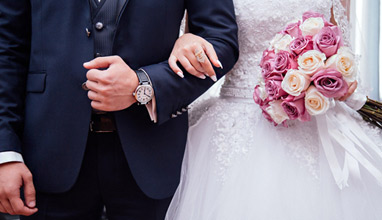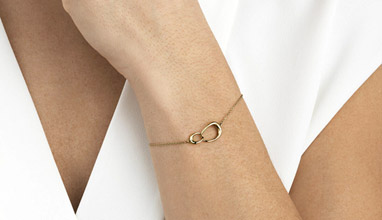From Sheep to Suit - the process of manufacturing cloth by Taylor and Lodge
Taylor & Lodge uses only the finest wool from around the world and works exclusively with some of these Merino sheep farms.
The greasy wool is scoured
Every year the sheep are shorn and the fleeces are washed. The different areas of the fleece are classified into different qualities and grades (micon) of fibre.
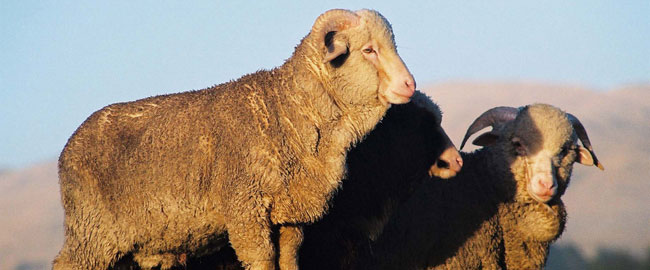
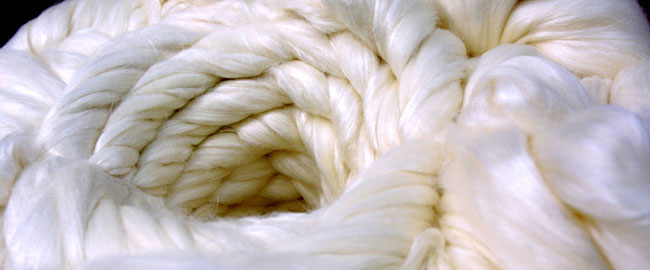
Spinning the wool into yarn
The next process is to turn the newly washed (scoured) wool into a yarn that can be woven within a loom. At Bulmer & Lumb, state of the art spinning machines draw the fibres together and spin the wool into various thickness of yarn (metric count).
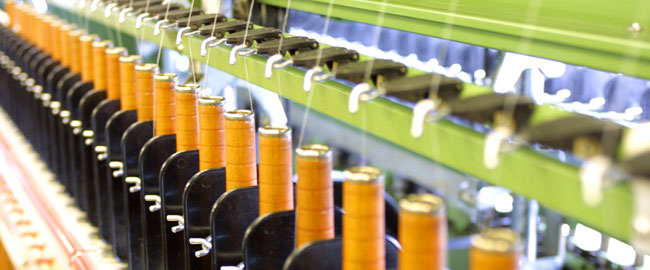
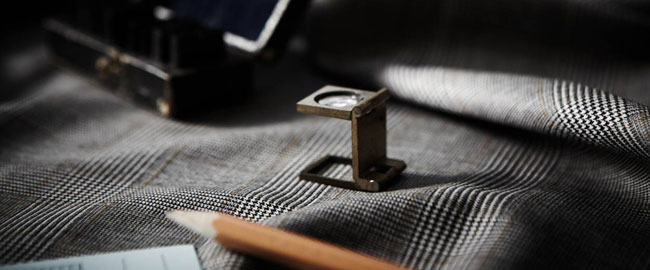
Designing cloth ranges
At Taylor & Lodge the experienced design team produce exclusive collections every season. This is done by creating various colours and designs with the use of a CAD (computer aided design) system which is linked directly with the pattern looms to produce the varying colours and styles that the customer can select.
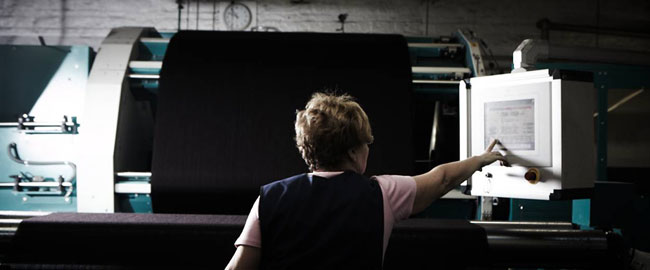
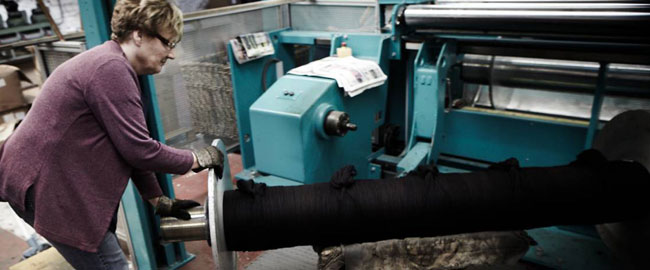
Fabric production
Once a customer has placed an order on a design the yarn goes through various production processes.
Warping
Taylor & Lodge uses within its production factory in Huddersfield a state of the art Karl Meyer warping machine. The threads of yarn in the vertical direction in the cloth (warp) are placed onto a beam of various lengths and density which are then prepared for weaving.
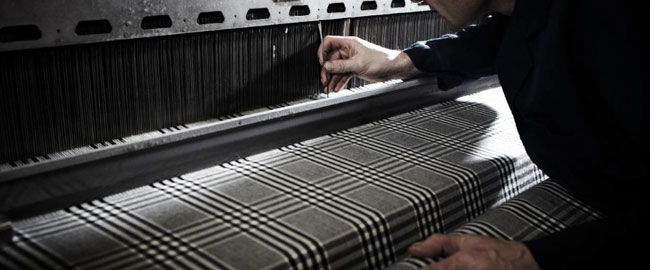
Weaving
Taylor & Lodge use only the very best Dornier rapier looms from Lindau, Germany and it is this process in which the horizontal threads (picks) are inserted using the age old process of woven fabrics, shedding, picking and beating, at this very point the fundamental principal of turning yarn into a woven fabric is completed. Fabrics can have all types of varying construction, plain weave, 2 x 2 twill as warp threads pass over and under the weft threads at varying intervals of construction. The woven (loom state) fabric is collected onto a beam at the front of the loom.
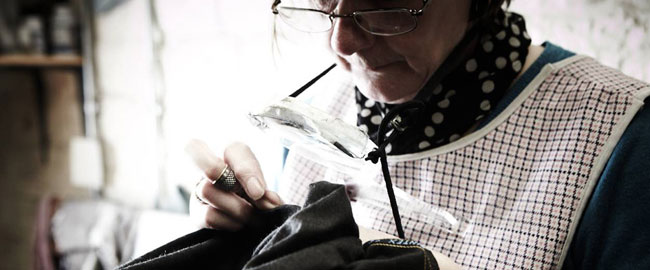
Mending
Once the woven fabric is removed from the loom, it is then carefully inspected inch by inch on the face and back of the cloth for any faults or broken threads that could have happened during weaving. These highly skilled staff carefully mend any flaws in the cloth which can take up to 12 hours per piece length (65mtrs).
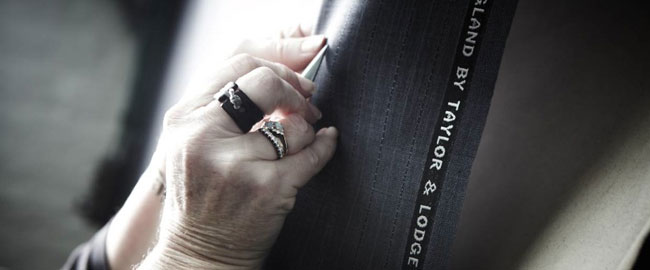
Finishing
This is the process in which the fabric is washed (scoured) and pressed into the finished article you see in a suit in store, although there are many other process which can be applied to fabrics at this stage including, water proofing(Teflon) and atmospheric setting of the fabric so it does not shrink. Our partners, Holmfirth Dyers and Finishers again use the very latest technology in finishing processes to ensure the very highest of standards are achieved.
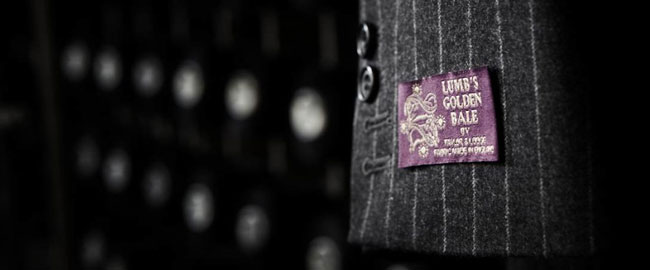
Despatch and Quality Control
After finishing the fabric is then fully inspected again inch by inch by our quality control team to ensure the customer is going to receive cloth of the very highest standard. It is not until these fabrics have passed all levels of our quality control that they will then be ready for final dispatch to the customer.
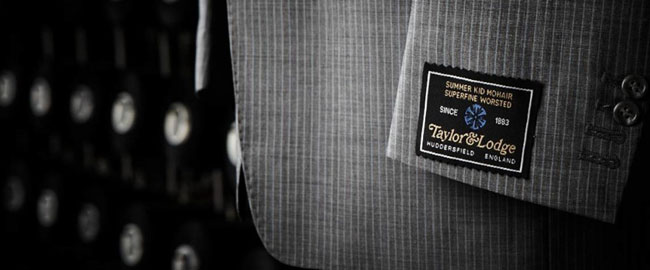
Today, Taylor & Lodge’s cloths can be seen all over the world in many department stores and designer boutiques like the Isitan department store in Tokyo, Harrods in London, Richard James Savile Row, and Louis Vuitton, Paris. It is with customers like these who demand the very highest of standards to ensure that what they are buying is one of the very best cloths in the world.
Photos and information: taylorandlodge.com
Hits: 12801 | Leave a comment
Tags:Taylor Lodge, merino wool, suit, fabric, yarn, fibre, cloth, manufacturing, Harrods, London, Richard James, Savile Row, Louis Vuitton, Paris, standard, mending, process, thread





